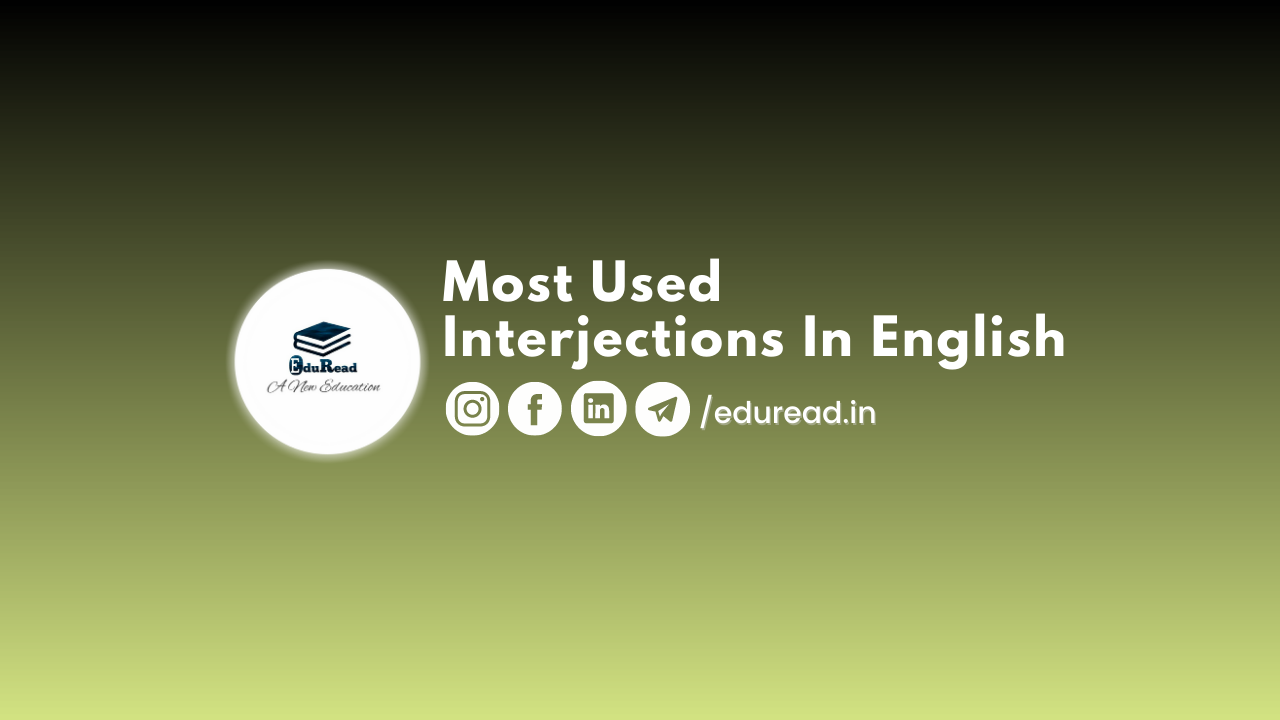Interjections are a unique part of the English language. They are short, spontaneous utterances that express emotion or feeling. Interjections can be used in a variety of situations and are often used to convey excitement, surprise, frustration, or other emotions. In this blog post, we’ll explore some of the most commonly used interjections in English.
Wow
“Wow” is a versatile interjection that can be used to express amazement, surprise, or admiration. It can be used in a positive or negative context, depending on the situation. For example, if you see a beautiful sunset, you might say “Wow, that’s amazing!” Alternatively, if someone tells you some bad news, you might say “Wow, that’s terrible.”
Oh
“Oh” is another commonly used interjection in English. It is often used to express surprise, disbelief, or realization. For example, if someone tells you a surprising fact, you might say “Oh, really?” Similarly, if you suddenly remember something important, you might say “Oh, I forgot!”
Oops
“Oops” is a lighthearted interjection that is used to express mild embarrassment or regret. It is often used when someone makes a small mistake or has a minor accident. For example, if you spill a drink on the table, you might say “Oops, sorry about that.”
Ah
“Ah” is an interjection that is often used to express understanding or realization. It can also be used to express pleasure or relief. For example, if you finally solve a difficult problem, you might say “Ah, I see now.” Similarly, if you take a sip of a cold drink on a hot day, you might say “Ah, that’s refreshing!”
Ugh
“Ugh” is an interjection that is used to express disgust, disappointment, or frustration. It is often used when something unpleasant or unwanted happens. For example, if you taste something unpleasant, you might say “Ugh, that’s gross.” Similarly, if you find out that you have to work overtime, you might say “Ugh, that’s annoying.”
Hey
“Hey” is an interjection that is often used to get someone’s attention or to greet someone. It can also be used to express surprise or excitement. For example, if you see a friend across the street, you might say “Hey, how’s it going?” Similarly, if you see something unusual, you might say “Hey, check this out!”
Yay
“Yay” is a cheerful interjection that is often used to express happiness or excitement. It is often used in celebratory situations. For example, if your favorite team wins a game, you might say “Yay, we won!” Similarly, if you receive good news, you might say “Yay, that’s great!”
Huh
“Huh” is an interjection that is used to express confusion or surprise. It is often used when someone doesn’t understand something or when something unexpected happens. For example, if someone tells you a joke that you don’t understand, you might say “Huh, I don’t get it.” Similarly, if someone says something surprising, you might say “Huh, really?”
Phew
“Phew” is an interjection that is used to express relief or exhaustion. It is often used after a stressful or difficult situation. For example, if you finish a long exam, you might say “Phew, that was tough.” Similarly, if you narrowly avoid an accident, you might say “Phew, that was close!”
Darn
“Darn” is an interjection that is used to express mild frustration or disappointment. It is often used in situations where something doesn’t go as planned. For example, if you realize that you forgot your phone at home, you might say “Darn, I need that for work.” Similarly, if you miss a bus, you might say “Darn, I’ll have to wait for the next one.”
In conclusion, interjections are an important part of the English language and are used to convey a range of emotions and reactions. While they may seem small and insignificant, they can add a lot of meaning and depth to a conversation. By learning and using these common interjections, you can better express yourself in English and connect with others on a more emotional level.
Follow Us for more such content to improve your speaking skills:
To know more, check out here: https://eduread.in/modal-verbs-in-englishspeak-new-york/
And visit us for more.
